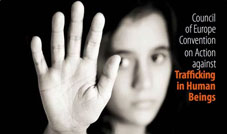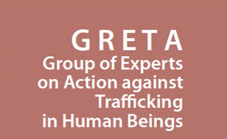
GRETA evaluates trafficking situation in Georgia
By Khatia Bzhalava
Thursday, March 18
The Group of Experts on Action against Trafficking in Human Beings (GRETA), the Council of Europe’s (CoE) anti-human trafficking monitoring body, released its third evaluation report on the "access to justice and effective remedies for victims of trafficking in human beings" in Georgia. The report reads that following the second evaluation round in 2015, Georgia has developed the legislative and policy framework relevant to action against trafficking, however the need to improve victim identification mechanism and strengthen criminal justice response is also stressed.
According to the report, since the previous evaluation, amendments have been made to the Criminal Code and Criminal Procedure Code to ensure the proper qualification of human trafficking offenses. Moreover, the report said the number of special mobile groups for identifying trafficking has increased from three to four, and the number of labor inspectors who have received appropriate training has grown as well.
GRETA notes that “Georgia is primarily a country of origin and, to a lesser extent, a country of destination and transit” of human trafficking victims. The total number of victims identified by the Georgian authorities in the 2015-2019 period was 66.
The report reads that in criminal proceedings, the right to free legal aid is ensured to adult and child victims of human trafficking and they are also provided by lawyers. Nevertheless, GRETA considers that the authorities should take further steps to ensure that access to legal aid and the appointment of a lawyer is guaranteed as soon as there are reasonable grounds for believing that a person is a victim of human trafficking.
GRETA notes positively the further development of the victim and witness coordinator service under the General Prosecutor’s Office and the creation of such a service under the Ministry of Internal Affairs. However, it is noted in the report that the Georgian authorities should take additional steps to ensure that victims and witnesses of human trafficking are provided with effective and appropriate protection from potential retaliation or intimidation.
GRETA welcomes the existence of specialized entities for fighting human trafficking within the police and considers that the Georgian authorities should take additional steps to ensure that all relevant professional groups are regularly trained on trafficking issues.
GRETA believes that the Georgian authorities should take further steps to ensure that human trafficking offenses for all forms of exploitation are proactively and promptly investigated, making use of special investigation techniques and financial investigations to gather evidence and not rely exclusively on testimony by victims or witnesses. GRETA calls on the Georgian authorities to ensure that human trafficking cases are not re-qualified as other offenses that carry lighter penalties.


